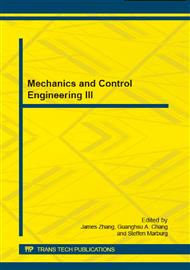p.403
p.408
p.412
p.419
p.424
p.431
p.435
p.442
p.447
Research on Mobile Internet for Smart Power Consumption
Abstract:
In this paper, research on mobile internet for smart power consumption had been completed; To encourage consumers to participate in peak-shifting, various devices and technologies have been deployed on customer premise, such as interactive terminals, data gathering equipments, load control devices, visualization technology, the interactive service platform and technical support platform etc. These measures have brought out major achievements. In Beijing, Shanghai, Nanchang and Yinchuan, through an empirical study for power consumption in the different cities, experiment showed that mobile internet for smart power consumption could reduce load difference, and smooth load curve, which can improve operation efficiency of power grid and relieve pressure of energy shortage due to the participation of consumers.
Info:
Periodical:
Pages:
424-428
DOI:
Citation:
Online since:
December 2014
Authors:
Price:
Сopyright:
© 2015 Trans Tech Publications Ltd. All Rights Reserved
Share:
Citation:


